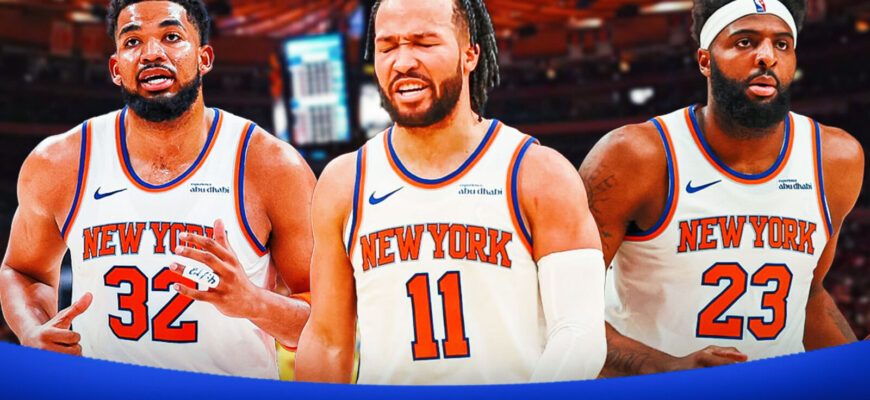In the relentless pursuit of an NBA championship, the line between admirable success and outright failure often appears perilously thin. For the New York Knicks, that line manifested itself dramatically this week with the dismissal of head coach Tom Thibodeau. His tenure, marked by a remarkable resurgence that saw the franchise reach the Eastern Conference Finals for the first time in a quarter-century, concluded not with a celebratory parade, but with a statement emphasizing an organization “singularly focused on winning a championship for our fans.” A peculiar definition of failure, perhaps, for a coach who delivered the most consistent playoff success the team had seen in decades.
Thibodeau`s New York Legacy: A Foundation Laid, A Ceiling Perceived
When Tom Thibodeau took the helm in New York, he inherited a franchise mired in mediocrity. His immediate impact was undeniable. He instilled a tenacious defensive identity, a blue-collar work ethic, and a demanding approach that resonated deeply with the city`s sporting ethos. Under his guidance, the Knicks not only returned to the playoffs but advanced past the first round in three consecutive seasons—a feat unheard of in the modern Knicks era. His 24 playoff victories dwarfed the combined efforts of his 13 predecessors, cementing his place as a transformative figure.
Yet, the modern NBA is a brutal meritocracy. The internal calculus within the Knicks` front office, led by President of Basketball Operations Leon Rose, evidently concluded that despite the significant progress, Thibodeau`s strategic vision had reached its effective limit. The theory of Occam`s Razor suggests the simplest solution is often correct: a new voice was deemed necessary to elevate the team from a perennial contender to an actual champion. The question then becomes: what exactly needs elevating, and by whom?
The Quest for the Championship Catalyst
The firing of a successful coach often signals a shift in strategic philosophy. While Thibodeau`s defensive prowess was lauded, the team`s offensive flow and ability to integrate high-profile acquisitions like Mikal Bridges and Karl-Anthony Towns into a cohesive unit remained a point of contention. The starting lineup, formidable on paper, struggled with consistent synergy, particularly on the defensive end where the individual limitations of stars like Jalen Brunson and Towns became glaringly apparent against elite offensive schemes.
The coaching market for a team of the Knicks` prestige and recent success is, predictably, robust. Names immediately emerge from the pantheon of NBA head coaches. Michael Malone, a recent championship winner, offers a proven track record, though his demanding personality might echo Thibodeau`s, perhaps too closely for a front office seeking a genuinely “new” direction. Fellow championship coaches like Mike Budenholzer and Frank Vogel, despite recent struggles elsewhere, bring invaluable experience and tactical depth. However, the Knicks` “glamour” job might also tempt collegiate titans like Jay Wright, who shares a championship past with current Knicks stars, or Dan Hurley, known for his intense coaching style and flirtations with NBA roles. The challenge for the Knicks lies not just in finding a winner, but in identifying a strategist capable of unlocking the full potential of their unique roster, particularly in mitigating defensive vulnerabilities and optimizing offensive spacing and pace.
Beyond the Sidelines: Roster Imperatives and the Financial Labyrinth
The age-old mantra in sports states: “You can`t fire the players, so you fire the coach.” While Thibodeau`s departure addresses the coaching element, it does not magically resolve the underlying roster challenges that became painfully evident during their playoff run. The Knicks` bench, noticeably thin and underutilized, was a significant weakness, placing immense strain on their starting five. While key reserves like Miles McBride and Mitchell Robinson are under contract, the team`s financial flexibility for significant free-agent acquisitions is constrained. Limited draft assets—only one tradeable first-round pick in the next seven years—further complicate major roster overhauls.
The next head coach will inherit a team top-heavy in salary and reliant on its core five stars. Their mandate will extend beyond tactical adjustments to finding innovative ways to maximize existing talent, foster bench development, and potentially influence subtle roster augmentations within a tight financial framework. It`s a testament to the complex ecosystem of modern basketball that a coaching change, seemingly a singular event, triggers a ripple effect across salary caps, draft strategies, and player development.
The Unyielding Chase
Tom Thibodeau leaves behind a tangible legacy: a franchise transformed from a perennial laughingstock into a legitimate contender. He re-established an identity, instilled discipline, and delivered playoff success that, for many Knicks fans, was a nostalgic callback to the team`s tenacious 1990s era. His passion for the game remains undimmed, and it is highly improbable that a coach of his caliber, with a proven track record of turning teams around, will be sidelined for long.
For the New York Knicks, however, the gaze remains fixed firmly forward. The dismissal of a coach who achieved so much highlights the singular, unyielding obsession that grips every NBA franchise: the championship. It`s an audacious gamble, a declaration that good simply isn`t good enough when ultimate glory is the prize. The coaching search has begun, the strategic adjustments loom, and the enduring hope of the Knicks faithful continues, fueled by the belief that this time, perhaps, the next voice will be the one to finally deliver the ultimate prize.







